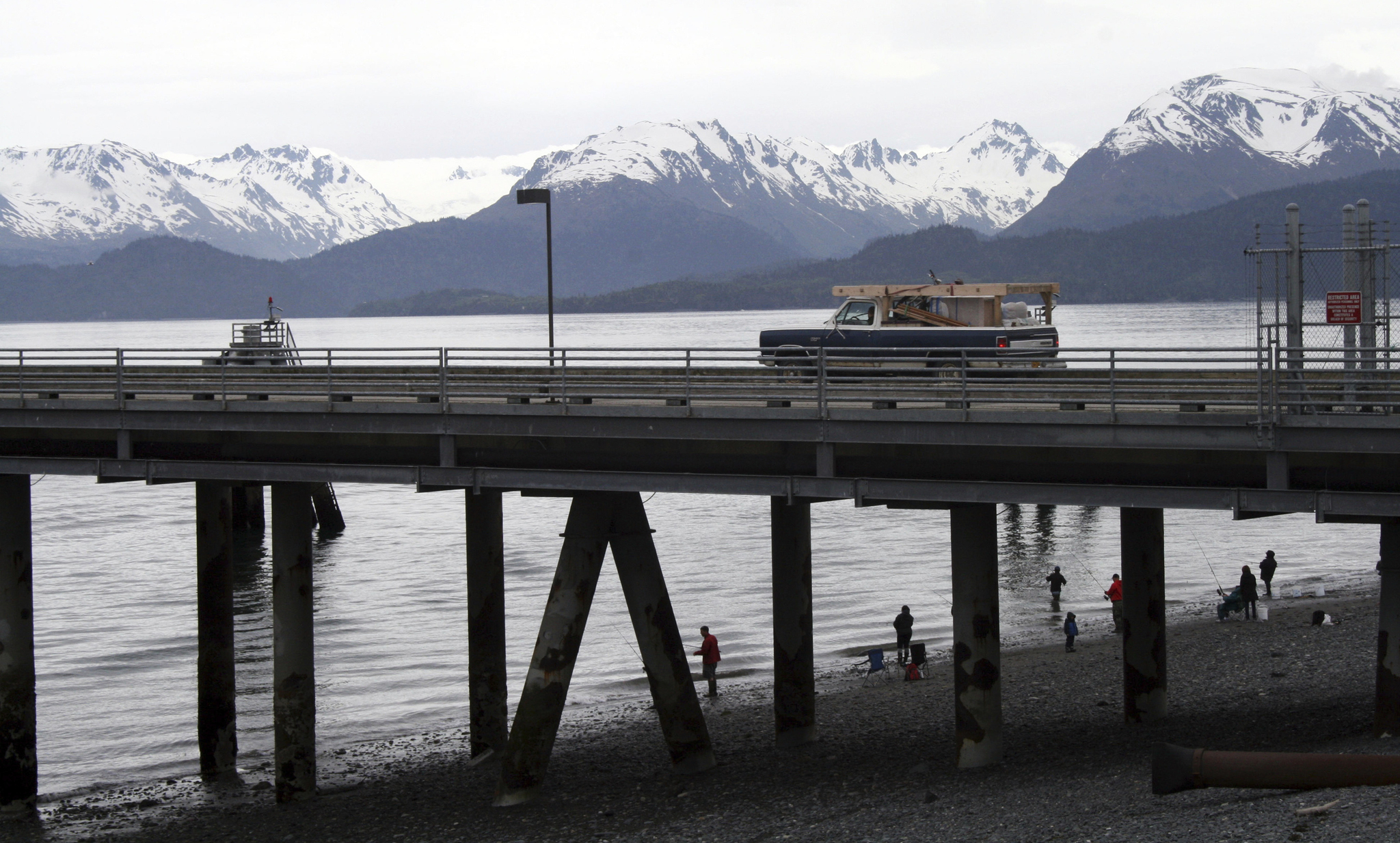JUNEAU — The small Alaska fishing community of Homer is no stranger to political activism.
In the 1970s, a landmark legal case involving one of its residents found the constitutional right to privacy in Alaska extends to the at-home use of marijuana.
In 1989, Homer became a “nuclear-free” zone. And just last month, hundreds turned out for a women’s march in the city.
Now, Homer is wading deeper into the national political debate, becoming the latest U.S. city to consider affirming its commitment to inclusion amid concerns about the treatment of immigrants, religious groups, the LGBTQ community and others.
The City Council on Monday is expected to weigh a resolution that states Homer will resist any efforts to profile “vulnerable populations” and will reject any expressions of fear and hate.
If it passes, the city will join others such as Boise, Idaho, that have branded themselves as welcoming in recent weeks. It doesn’t go as far as places like Seattle, San Francisco and New York, which offer sanctuary protections for people in the country illegally.
Homer’s resolution says the city will cooperate with federal authorities investigating immigration violations.
The proposal has been softened from an early draft that stated President Donald Trump took power without a popular mandate and has made “offensive and harmful” statements.
Hal Spence, a resident who worked on the draft, said he is part of a group composed mostly of progressives that began meeting after Trump’s election, “hands in the air wondering, ‘What do we do now?’” One of the goals with the measure was to generate debate, which has happened, he said.
Even with the softer tone, some residents see the effort as unnecessary and a slap in the face.
“Why do you have to legislate something or mention something that we’re already doing just fine?” Homer-area resident Christina Partridge said. She sees the measure as dragging the city of about 5,200 people into the political fights being waged nationally.
“It’s very sad that they’re bringing this up and causing all this strife in the community,” said Partridge, adding she is not affiliated with a political party. She declined to say if she voted for Trump.
In Homer, like the rest of Alaska, independents outnumber registered Republicans or Democrats. Trump won the state and the district that includes Homer in the November election.
Writer Tom Kizzia was editor of a Homer newspaper in the 1970s, when hippies and “back-to-the landers” were discovering the town.
“That was mixing in with the old homesteader community — there was a bit of a culture war that was getting built into the town system,” he said.
Back then, it seemed like every February an issue would jolt the community — fights over oil drilling, a nude sign at a bar — but that seems to have subsided in recent years, Kizzia said.
Today, the city that bills itself as the “Halibut Fishing Capital of the World” has a worldliness to it, Kizzia said. He cited its arts community, documentary film festival and restaurants that are the envy of his friends in Anchorage, about 230 miles to the north.
“Unlike when I got here in the ’70s, you don’t feel like you’re depriving yourself of things to be here,” he said of Homer, which is literally where the road — in this case, the Sterling Highway — ends on Alaska’s Kenai Peninsula.
Catriona Reynolds, a Homer City Council member, said residents commonly bring suggested resolutions to her and her fellow council members for discussion.
Reynolds liked the idea of making a statement on inclusivity. But she said the edgier draft, which was posted online, contained a lot of negativity that she worried would “hamper it from being understood for what it was.”
“It doesn’t need to say what it’s standing against,” she said. “It can just say what it’s standing for.”
Reynolds said she and another council member, Donna Aderhold, agreed it was best to try to rework the measure before it was presented to the council. Another community member offered suggestions.
Businessman and district Republican chairman Jon Faulkner said he agrees with the concepts in the revised resolution but has a hard time divorcing it from the earlier draft. He noted he was speaking for himself and not the district.
Spence supports the revised version, which he said still stands for civil and human rights. The community should know where the council stands on that, he said.
Reynolds said the resolution would defend the status quo.
“It’s not stopping anything that was already happening. It’s just setting what we already stand for in place,” she said.

